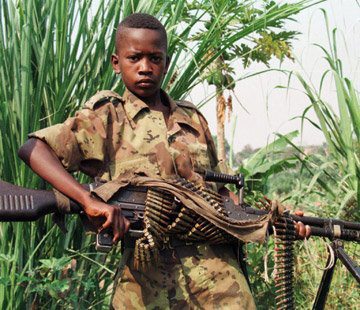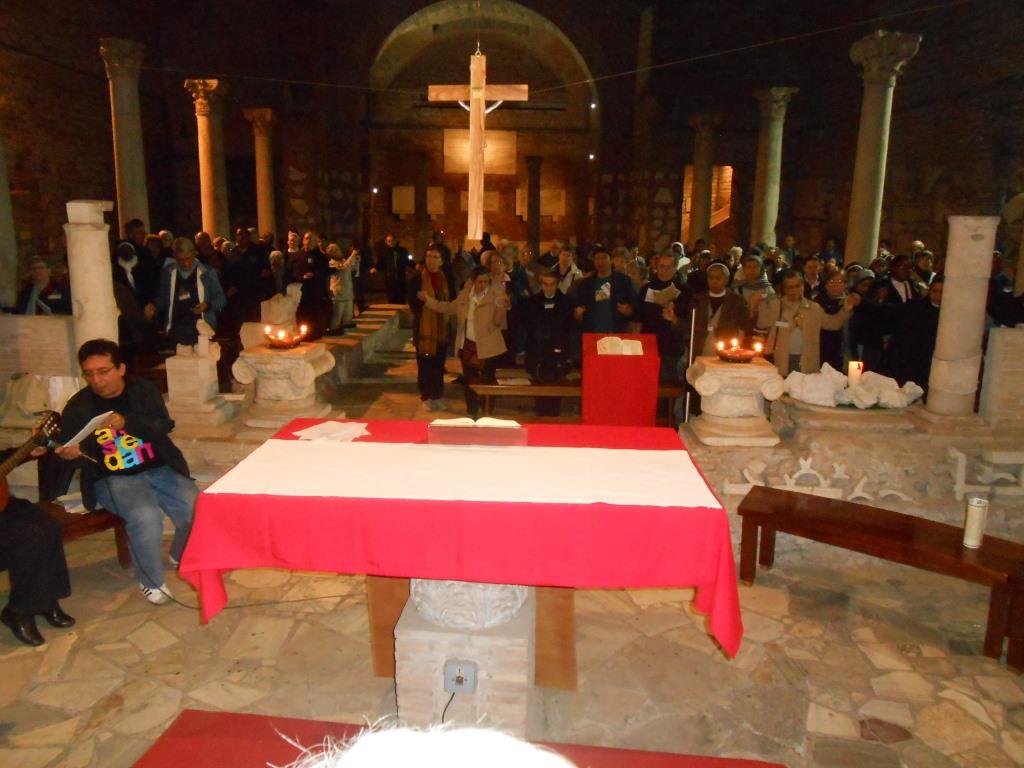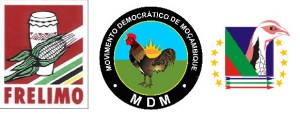We share with you a short video from OXFAM explaining how inequality is growing in the world.
JPIC_en
Justice, Peace and Integrity of Creation
Message of Pope for the World Day of Pace 2015
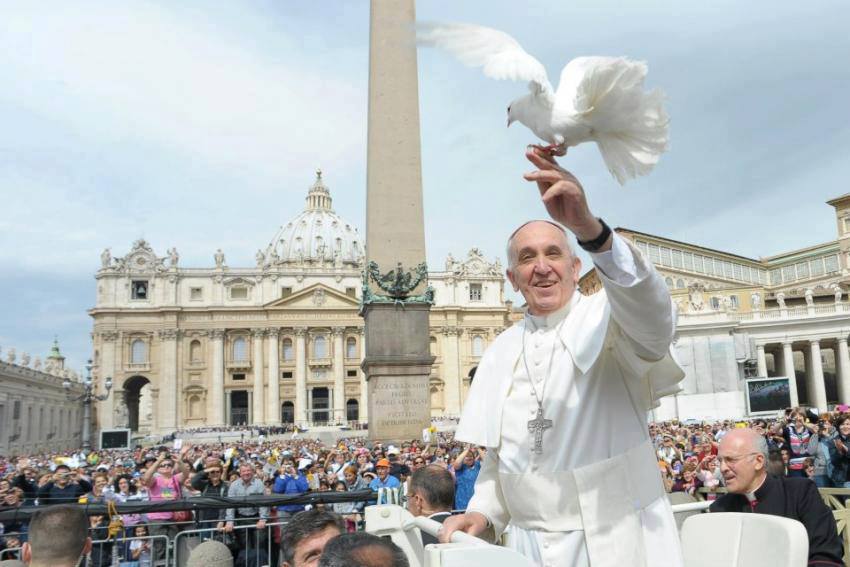 “The globalization of indifference, which today burdens the lives of so many of our brothers and sisters, requires all of us to forge a new worldwide solidarity and fraternity capable of giving them new hope.” Message of His Holiness Pope Francis for the celebration of the World Day of Pace: 1 January 2015.
“The globalization of indifference, which today burdens the lives of so many of our brothers and sisters, requires all of us to forge a new worldwide solidarity and fraternity capable of giving them new hope.” Message of His Holiness Pope Francis for the celebration of the World Day of Pace: 1 January 2015.
No longer slaves, but brothers and sisters
At the beginning of this New Year, which we welcome as God’s gracious gift to all humanity, I offer heartfelt wishes of peace to every man and woman, to all the world’s peoples and nations, to heads of state and government, and to religious leaders. In doing so, I pray for an end to wars, conflicts and the great suffering caused by human agency, by epidemics past and present, and by the devastation wrought by natural disasters. I pray especially that, on the basis of our common calling to cooperate with God and all people of good will for the advancement of harmony and peace in the world, we may resist the temptation to act in a manner unworthy of our humanity.
In my Message for Peace last year, I spoke of “the desire for a full life… which includes a longing for fraternity which draws us to fellowship with others and enables us to see them not as enemies or rivals, but as brothers and sisters to be accepted and embraced”.[1] Since we are by nature relational beings, meant to find fulfilment through interpersonal relationships inspired by justice and love, it is fundamental for our human development that our dignity, freedom and autonomy be acknowledged and respected. Tragically, the growing scourge of man’s exploitation by man gravely damages the life of communion and our calling to forge interpersonal relations marked by respect, justice and love. This abominable phenomenon, which leads to contempt for the fundamental rights of others and to the suppression of their freedom and dignity, takes many forms. I would like briefly to consider these, so that, in the light of God’s word, we can consider all men and women “no longer slaves, but brothers and sisters”.
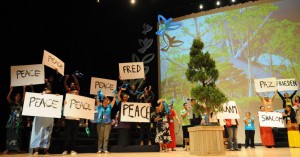 Listening to God’s plan for humanity
Listening to God’s plan for humanity
The theme I have chosen for this year’s message is drawn from Saint Paul’s letter to Philemon, in which the Apostle asks his co-worker to welcome Onesimus, formerly Philemon’s slave, now a Christian and, therefore, according to Paul, worthy of being considered a brother. The Apostle of the Gentiles writes: “Perhaps this is why he was parted from you for a while, that you might have him back for ever, no longer as a slave but more than a slave, as a beloved brother” (vv. 15-16). Onesimus became Philemon’s brother when he became a Christian. Conversion to Christ, the beginning of a life lived Christian discipleship, thus constitutes a new birth (cf. 2 Cor 5:17; 1 Pet 1:3) which generates fraternity as the fundamental bond of family life and the basis of life in society.
In the Book of Genesis (cf. 1:27-28), we read that God made man male and female, and blessed them so that they could increase and multiply. He made Adam and Eve parents who, in response to God’s command to be fruitful and multiply, brought about the first fraternity, that of Cain and Abel. Cain and Abel were brothers because they came forth from the same womb. Consequently they had the same origin, nature and dignity as their parents, who were created in the image and likeness of God.
But fraternity also embraces variety and differences between brothers and sisters, even though they are linked by birth and are of the same nature and dignity. As brothers and sisters, therefore, all people are in relation with others, from whom they differ, but with whom they share the same origin, nature and dignity. In this way, fraternity constitutes the network of relations essential for the building of the human family created by God.
Tragically, between the first creation recounted in the Book of Genesis and the new birth in Christ whereby believers become brothers and sisters of the “first-born among many brethren” (Rom 8:29), there is the negative reality of sin, which often disrupts human fraternity and constantly disfigures the beauty and nobility of our being brothers and sisters in the one human family. It was not only that Cain could not stand Abel; he killed him out of envy and, in so doing, committed the first fratricide. “Cain’s murder of Abel bears tragic witness to his radical rejection of their vocation to be brothers. Their story (cf. Gen 4:1-16) brings out the difficult task to which all men and women are called, to live as one, each taking care of the other”.[2]
This was also the case with Noah and his children (cf. Gen 9:18-27). Ham’s disrespect for his father Noah drove Noah to curse his insolent son and to bless the others, those who honoured him. This created an inequality between brothers born of the same womb.
In the account of the origins of the human family, the sin of estrangement from God, from the father figure and from the brother, becomes an expression of the refusal of communion. It gives rise to a culture of enslavement (cf. Gen 9:25-27), with all its consequences extending from generation to generation: rejection of others, their mistreatment, violations of their dignity and fundamental rights, and institutionalized inequality. Hence, the need for constant conversion to the Covenant, fulfilled by Jesus’ sacrifice on the cross, in the confidence that “where sin increased, grace abounded all the more… through Jesus Christ” (Rom 5:20-21). Christ, the beloved Son (cf. Mt 3:17), came to reveal the Father’s love for humanity. Whoever hears the Gospel and responds to the call to conversion becomes Jesus’ “brother, sister and mother” (Mt 12:50), and thus an adopted son of his Father (cf. Eph 1:5).
One does not become a Christian, a child of the Father and a brother or sister in Christ, as the result of an authoritative divine decree, without the exercise of personal freedom: in a word, without being freely converted to Christ. Becoming a child of God is necessarily linked to conversion: “Repent, and be baptized, every one of you, in the name of Jesus Christ for the forgiveness of your sins; and you shall receive the gift of the Holy Spirit” (Acts 2:38). All those who responded in faith and with their lives to Peter’s preaching entered into the fraternity of the first Christian community (cf. 1 Pet 2:17; Acts 1:15-16, 6:3, 15:23): Jews and Greeks, slaves and free (cf. 1 Cor 12:13; Gal 3:28). Differing origins and social status did not diminish anyone’s dignity or exclude anyone from belonging to the People of God. The Christian community is thus a place of communion lived in the love shared among brothers and sisters (cf. Rom 12:10; 1 Thess 4:9; Heb 13:1; 1 Pet 1:22; 2 Pet 1:7).
All of this shows how the Good News of Jesus Christ, in whom God makes “all things new” (Rev 21:5),[3] is also capable of redeeming human relationships, including those between slaves and masters, by shedding light on what both have in common: adoptive sonship and the bond of brotherhood in Christ. Jesus himself said to his disciples: “No longer do I call you servants, for the servant does not know what his master is doing; but I have called you friends, for all that I have heard from my Father I have made known to you” (Jn 15:15).
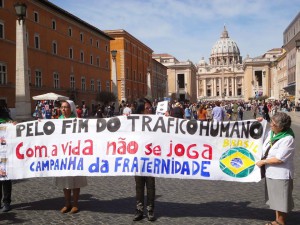 The many faces of slavery yesterday and today
The many faces of slavery yesterday and today
From time immemorial, different societies have known the phenomenon of man’s subjugation by man. There have been periods of human history in which the institution of slavery was generally accepted and regulated by law. This legislation dictated who was born free and who was born into slavery, as well as the conditions whereby a freeborn person could lose his or her freedom or regain it. In other words, the law itself admitted that some people were able or required to be considered the property of other people, at their free disposition. A slave could be bought and sold, given away or acquired, as if he or she were a commercial product.
Today, as the result of a growth in our awareness, slavery, seen as a crime against humanity,[4] has been formally abolished throughout the world. The right of each person not to be kept in a state of slavery or servitude has been recognized in international law as inviolable.
Yet, even though the international community has adopted numerous agreements aimed at ending slavery in all its forms, and has launched various strategies to combat this phenomenon, millions of people today – children, women and men of all ages – are deprived of freedom and are forced to live in conditions akin to slavery.
I think of the many men and women labourers, including minors, subjugated in different sectors, whether formally or informally, in domestic or agricultural workplaces, or in the manufacturing or mining industry; whether in countries where labour regulations fail to comply with international norms and minimum standards, or, equally illegally, in countries which lack legal protection for workers’ rights.
I think also of the living conditions of many migrants who, in their dramatic odyssey, experience hunger, are deprived of freedom, robbed of their possessions, or undergo physical and sexual abuse. In a particular way, I think of those among them who, upon arriving at their destination after a gruelling journey marked by fear and insecurity, are detained in at times inhumane conditions. I think of those among them, who for different social, political and economic reasons, are forced to live clandestinely. My thoughts also turn to those who, in order to remain within the law, agree to disgraceful living and working conditions, especially in those cases where the laws of a nation create or permit a structural dependency of migrant workers on their employers, as, for example, when the legality of their residency is made dependent on their labour contract. Yes, I am thinking of “slave labour”.
I think also of persons forced into prostitution, many of whom are minors, as well as male and female sex slaves. I think of women forced into marriage, those sold for arranged marriages and those bequeathed to relatives of their deceased husbands, without any right to give or withhold their consent.
Nor can I fail to think of all those persons, minors and adults alike, who are made objects of trafficking for the sale of organs, for recruitment as soldiers, for begging, for illegal activities such as the production and sale of narcotics, or for disguised forms of cross-border adoption.
Finally, I think of all those kidnapped and held captive by terrorist groups, subjected to their purposes as combatants, or, above all in the case of young girls and women, to be used as sex slaves. Many of these disappear, while others are sold several times over, tortured, mutilated or killed.
Today, as in the past, slavery is rooted in a notion of the human person which allows him or her to be treated as an object. Whenever sin corrupts the human heart and distances us from our Creator and our neighbours, the latter are no longer regarded as beings of equal dignity, as brothers or sisters sharing a common humanity, but rather as objects. Whether by coercion or deception, or by physical or psychological duress, human persons created in the image and likeness of God are deprived of their freedom, sold and reduced to being the property of others. They are treated as means to an end.
Alongside this deeper cause – the rejection of another person’s humanity – there are other causes which help to explain contemporary forms of slavery. Among these, I think in the first place of poverty, underdevelopment and exclusion, especially when combined with a lack of access to education or scarce, even non-existent, employment opportunities. Not infrequently, the victims of human trafficking and slavery are people who look for a way out of a situation of extreme poverty; taken in by false promises of employment, they often end up in the hands of criminal networks which organize human trafficking. These networks are skilled in using modern means of communication as a way of luring young men and women in various parts of the world.
Another cause of slavery is corruption on the part of people willing to do anything for financial gain. Slave labour and human trafficking often require the complicity of intermediaries, be they law enforcement personnel, state officials, or civil and military institutions. “This occurs when money, and not the human person, is at the centre of an economic system. Yes, the person, made in the image of God and charged with dominion over all creation, must be at the centre of every social or economic system. When the person is replaced by mammon, a subversion of values occurs”.[5]
Further causes of slavery include armed conflicts, violence, criminal activity and terrorism. Many people are kidnapped in order to be sold, enlisted as combatants, or sexually exploited, while others are forced to emigrate, leaving everything behind: their country, home, property, and even members of their family. They are driven to seek an alternative to these terrible conditions even at the risk of their personal dignity and their very lives; they risk being drawn into that vicious circle which makes them prey to misery, corruption and their baneful consequences.
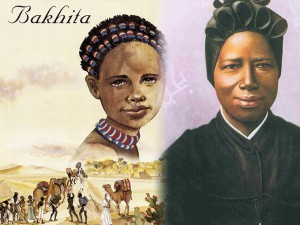 A shared commitment to ending slavery
A shared commitment to ending slavery
Often, when considering the reality of human trafficking, illegal trafficking of migrants and other acknowledged or unacknowledged forms of slavery, one has the impression that they occur within a context of general indifference.
Sadly, this is largely true. Yet I would like to mention the enormous and often silent efforts which have been made for many years by religious congregations, especially women’s congregations, to provide support to victims. These institutes work in very difficult situations, dominated at times by violence, as they work to break the invisible chains binding victims to traffickers and exploiters. Those chains are made up of a series of links, each composed of clever psychological ploys which make the victims dependent on their exploiters. This is accomplished by blackmail and threats made against them and their loved ones, but also by concrete acts such as the confiscation of their identity documents and physical violence. The activity of religious congregations is carried out in three main areas: in offering assistance to victims, in working for their psychological and educational rehabilitation, and in efforts to reintegrate them into the society where they live or from which they have come.
This immense task, which calls for courage, patience and perseverance, deserves the appreciation of the whole Church and society. Yet, of itself, it is not sufficient to end the scourge of the exploitation of human persons. There is also need for a threefold commitment on the institutional level: to prevention, to victim protection and to the legal prosecution of perpetrators. Moreover, since criminal organizations employ global networks to achieve their goals, efforts to eliminate this phenomenon also demand a common and, indeed, a global effort on the part of various sectors of society.
States must ensure that their own legislation truly respects the dignity of the human person in the areas of migration, employment, adoption, the movement of businesses offshore and the sale of items produced by slave labour. There is a need for just laws which are centred on the human person, uphold fundamental rights and restore those rights when they have been violated. Such laws should also provide for the rehabilitation of victims, ensure their personal safety, and include effective means of enforcement which leave no room for corruption or impunity. The role of women in society must also be recognized, not least through initiatives in the sectors of culture and social communications.
Intergovernmental organizations, in keeping with the principle of subsidiarity, are called to coordinate initiatives for combating the transnational networks of organized crime which oversee the trafficking of persons and the illegal trafficking of migrants. Cooperation is clearly needed at a number of levels, involving national and international institutions, agencies of civil society and the world of finance.
Businesses[6] have a duty to ensure dignified working conditions and adequate salaries for their employees, but they must also be vigilant that forms of subjugation or human trafficking do not find their way into the distribution chain. Together with the social responsibility of businesses, there is also the social responsibility of consumers. Every person ought to have the awareness that “purchasing is always a moral – and not simply an economic – act”.[7]
Organizations in civil society, for their part, have the task of awakening consciences and promoting whatever steps are necessary for combating and uprooting the culture of enslavement.
In recent years, the Holy See, attentive to the pain of the victims of trafficking and the voice of the religious congregations which assist them on their path to freedom, has increased its appeals to the international community for cooperation and collaboration between different agencies in putting an end to this scourge.[8] Meetings have also been organized to draw attention to the phenomenon of human trafficking and to facilitate cooperation between various agencies, including experts from the universities and international organizations, police forces from migrants’ countries of origin, transit, or destination, and representatives of ecclesial groups which work with victims. It is my hope that these efforts will continue to expand in years to come.
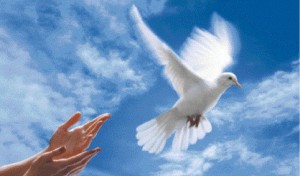 Globalizing fraternity, not slavery or indifference
Globalizing fraternity, not slavery or indifference
In her “proclamation of the truth of Christ’s love in society”,[9] the Church constantly engages in charitable activities inspired by the truth of the human person. She is charged with showing to all the path to conversion, which enables us to change the way we see our neighbours, to recognize in every other person a brother or sister in our human family, and to acknowledge his or her intrinsic dignity in truth and freedom. This can be clearly seen from the story of Josephine Bakhita, the saint originally from the Darfur region in Sudan who was kidnapped by slave-traffickers and sold to brutal masters when she was nine years old. Subsequently – as a result of painful experiences – she became a “free daughter of God” thanks to her faith, lived in religious consecration and in service to others, especially the most lowly and helpless. This saint, who lived at the turn of the twentieth century, is even today an exemplary witness of hope[10] for the many victims of slavery; she can support the efforts of all those committed to fighting against this “open wound on the body of contemporary society, a scourge upon the body of Christ”. [11]
In the light of all this, I invite everyone, in accordance with his or her specific role and responsibilities, to practice acts of fraternity towards those kept in a state of enslavement. Let us ask ourselves, as individuals and as communities, whether we feel challenged when, in our daily lives, we meet or deal with persons who could be victims of human trafficking, or when we are tempted to select items which may well have been produced by exploiting others. Some of us, out of indifference, or financial reasons, or because we are caught up in our daily concerns, close our eyes to this. Others, however, decide to do something about it, to join civic associations or to practice small, everyday gestures – which have so much merit! – such as offering a kind word, a greeting or a smile. These cost us nothing but they can offer hope, open doors, and change the life of another person who lives clandestinely; they can also change our own lives with respect to this reality.
We ought to recognize that we are facing a global phenomenon which exceeds the competence of any one community or country. In order to eliminate it, we need a mobilization comparable in size to that of the phenomenon itself. For this reason I urgently appeal to all men and women of good will, and all those near or far, including the highest levels of civil institutions, who witness the scourge of contemporary slavery, not to become accomplices to this evil, not to turn away from the sufferings of our brothers and sisters, our fellow human beings, who are deprived of their freedom and dignity. Instead, may we have the courage to touch the suffering flesh of Christ,[12] revealed in the faces of those countless persons whom he calls “the least of these my brethren” (Mt 25:40, 45).
We know that God will ask each of us: What did you do for your brother? (cf. Gen 4:9-10). The globalization of indifference, which today burdens the lives of so many of our brothers and sisters, requires all of us to forge a new worldwide solidarity and fraternity capable of giving them new hope and helping them to advance with courage amid the problems of our time and the new horizons which they disclose and which God places in our hands.
FRANCISCUS
[1] No. 1.
[2] Message for the 2014 World Day of Peace, 2.
[3] Cf. Apostolic Exhortation Evangelii Gaudium, 11.
[4] Cf. Address to Delegates of the International Association of Penal Law, 23 October 2014: L’Osservatore Romano, 24 October 2014, p. 4.
[5] Address to Participants in the World Meeting of Popular Movements, 28 October 2014: L’Osservatore Romano, 29 October 2014, p. 7.
[6] Cf. PONTIFICAL COUNCIL FOR JUSTICE AND PEACE, Vocation of the Business Leader: A Reflection, 2013.
[7] BENEDICT XVI, Encyclical Letter Caritas in Veritate, 66.
[8] Cf. Message to Mr Guy Ryder, Director General of the International Labour Organization, on the occasion of the 103rd Session of the ILO, 22 May 2014: L’Osservatore Romano, 29 May 2014, p. 7.
[9] BENEDICT XVI, Encyclical Letter Caritas in Veritate, 5.
[10] “Through the knowledge of this hope she was ‘redeemed’, no longer a slave, but a free child of God. She understood what Paul meant when he reminded the Ephesians that previously they were without hope and without God in the world – without hope because without God” (BENEDICT XVI, Encyclical Letter Spe Salvi, 3).
[11] Address to Participants in the Second International Conference on Combating Human Trafficking: Church and Law Enforcement in Partnership, 10 April 2014: L’Osservatore Romano, 11 April 2014, p. 7; cf. Apostolic Exhortation Evangelii Gaudium, 270.
[12] Cf. Apostolic Exhortation Evangelii Gaudium, 24 and 270.
——————————————————————————————–
A poor Church for the poor and the Pact of the Catacombs
On November 16, 1965, forty bishops participating in the Second Vatican Council met in the Domitilla Catacombs outside Rome for a celebration of the Eucharist. On that occasion they drew up and signed a document called the “Pact of the Catacombs”, which expressed their personal commitments as bishops to live a poor lifestyle and to relaunch a “servant and poor” Church. Today Pope Francis again called everyone to the centrality of a “Church that is poor for the poor.” In fact, only a poor Church can walk with the poor, becoming the voice of their denied rights. Fifty years after the Pact of the Catacombs, a large number of religious and lay people met yesterday, Sunday 16 November, in the Catacombs, to celebrate and to commemorate this great ecclesial event.
As the Second Vatican Council drew to a close, on November 16, 1965, forty council bishops met in the Domitilla Catacombs outside Rome for a celebration of the Eucharist and gave birth to a document which marked an important stage in the life of the Church.
In the text, called the “Pact of the Domitilla Catacombs,” the bishops undertook to live a poor lifestyle and to relaunch a “servant and poor” Church. The document, with an uncommon clarity, touched the most pressing issues of the moment that are still actual today, though they are lacking the more recent approaches such as the ecology and the globalization of war and terrorism.
To commemorate the 50th anniversary of the event and the document, on the invitation of the heads of the Justice and Peace department of the religious Institutes, dozens of religious and committed Christians met in the Domitilla Catacombs to a two hour-long liturgical celebration. In an atmosphere of prayer and reflection, the Pact was read in front of everyone and then taken up in small groups which, in their own different languages, deepened it and presented a few concrete suggestions to be implemented in the religious communities of those present.
The organizers expressed their satisfaction and recognized that the response and the turnout was much larger than they had expected.
[Mozambique] Political Debate
Mozambique is in period of election campaign for the presidential elections in the republic and the legislative and provincial assemblies, this which take place on 15 October of this year. There are three candidates approved by the constitutional council, representing the party FRELIMO, RENAMO and MDM.
Therefore, the Commission for Justice and Peace, organized a political debate, at the diocesan meeting for Justice and Peace of the Diocese of Nacala, it took place from 11 to 14 September, inviting representatives of the three parties in the District of Monapo to talk about the different proposals for their respective presidential candidates; they also answer questions and share with the animators how holds the process of the election campaign.
Thus, on the afternoon of September 12, the debate was held, attended by representatives of the parties and more than forty animators of Justice and Peace from the different parishes of the Diocese. It was a very interesting time for dialogue and questions, especially because of the participation of the animators, who made pertinent questions about specific situations without fear. Stand out questions of two women who participated in the meeting, talking about the situation which faces in the hospitals concerning to illegal collection and the lack of medicine, asking about what to do in this situation.
As with any campaign, there were no lack of proposals and promises from those representing the parties. Therefore it was an important exercise of citizenship, which should continue, not just on election day, but also in the accompanying of the chosen candidate for the Government!
Flávio Schmidt
Conclusions of the 2nd Meeting of the CLM in Africa
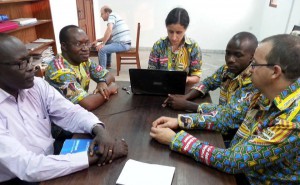 The 2nd Continental Meeting of the Comboni Lay Missionaries took place in Kinshasa, DRC on July 21-25, 2014. The participants included five priests, two sisters and 18 lay people, among them the six coordinators of the French-speaking and English-speaking African provinces. They were joined by representatives of the Central Committee.
The 2nd Continental Meeting of the Comboni Lay Missionaries took place in Kinshasa, DRC on July 21-25, 2014. The participants included five priests, two sisters and 18 lay people, among them the six coordinators of the French-speaking and English-speaking African provinces. They were joined by representatives of the Central Committee.
The objective of the Assembly of Kinshasa was to establish a concrete plan of action based on the resolutions of previous gatherings – the Continental Assembly of Layibi in 2001 and the International Assembly of Maia in 2012 – having as a theme: “Beginning with what we have starting from our reality.”
Keeping in mind the current challenges of our African reality, where God calls us to live our vocation as witnesses of his love, according to the charism of St. Daniel Comboni, at the service of mission, which is a gift from God, and after having reflected together, we have come to some conclusions that will allow each province to set up a plan of action. These are the conclusions:
1. Vocation
We want to encourage each CLM to live one’s vocation as it was defined at Layibi; to overcome life’s difficulties and to keep the commitments we have as fathers, workers and Christians, thus giving witness to our vocation.
As it was said in Maia, the CLM communities need to formulate processes that will allow the full development of the personal vocation of their members during their entire lifetime. This means setting up a program of prayer, retreats, sacramental life and revision of community life.
In order to facilitate a joint journey in our vocation as an International Family of CLM, we encourage the new groups to keep in touch regularly with the Continental and Central Committees, in order to get help from those responsible for the coordination. We believe that it is necessary to follow the common lines of the international organization.
2. Relations among the CLM
The movement holds one single vision. All must cooperate and work together at living a harmonious community life.
In order to facilitate the integration of new CLM in the local CLM groups, we must strengthen communications and networking between the sending group and the receiving group, the Central and Continental Committees and the MCCJ provincials.
In order to reach full integration, we invite the new CLM to take part in the group’s activities: ongoing formation, assemblies, retreats, administrative practices and financial contributions…
We encourage CLM working in countries where we have no local members to promote our vocation and form a local group.
3. Formation
As a movement of CLM in Africa, we are committed to make our formation journey together, in order to follow Christ according to the charism of Comboni who calls us to make common cause with the people to whom we are sent.
The decisions taken in earlier Assemblies guide us on this journey of formation, where we should keep in mind the following aspects:
- The provinces must cooperate in the preparation of the various programs and materials for formation;
- We must share programs and topics of formation between the provinces and with the Central Committee;
- We must translate in all languages the formation documents.
4. Economy
We want to include the economy in our spiritual life, in order to live a life based on Providence. In this context, we ask the groups to include the topic of our relations with money in their formation programs, placing our stability and confidence in God.
In the process of our financial autonomy, we invite the various groups to form their members in the various aspects of finances, such as: development projects based on the local needs, the search for funds, compatibility…
Knowing that we all belong to this family of CLM, we are called to be responsible for and to support the group. In this sense, all the CLM must contribute to the fund of the local group. From this fund, the group in turn should contribute to the international common fund, managed by the Central Committee. We are also called to inspire the local Church and all people of good will to support our missionary activity.
In order to reach our financial autonomy, we invite the groups to start fund-generating activities such as in the field of agriculture, animal husbandry, pharmacies, movies, internet and photo-copying centers, production of local artifacts, talks, formation, dialogue and promotion of events…
It is not enough to engage in projects, but we are also called to give financial reports with great transparency (ledgers, bank accounts with more than one signature…).
5. Organization
5.1 Each Province must have:
- A Coordinating Team made up of : a coordinator, a secretary and a treasurer. This team must send its reports to the African and to the General Committees.
- A person in charge of communications (blog, Facebook, Twitter).
- A Formation Team which must: plan and prepare the topics of formation; ensure the follow-up and the evaluation of the formation given.
- Each group must have someone from those in charge of formation who will be networking with those responsible at the national level.
5.2 African Committee:
- The Central Coordinating Team is made up of: a coordinator, a secretary a treasurer.
- Its duties are:
- Ensure communications with the Central Committee.
- Call and organize continental meetings.
- Provide for communications between the provinces.
- Take care that the decisions taken at the various assemblies be implemented.




